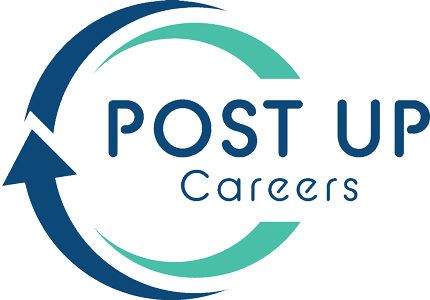Introducing yourself to a recruiter sounds like an easy win – after all, you know all about yourself – but the opening “So, tell me about yourself,” stumps most people in job interviews. Summing up years (possibly decades) of experience in a succinct statement that relates to the position you’re applying for isn’t something most people can do on the fly, and stumbling through an explanation doesn’t make for a great first impression. You don’t want to find yourself sitting across the desk, thinking, Um, what do you want to know? How am I supposed to pick what to share out of my entire life story right now? Luckily, you can prepare for this opening prompt in advance and set the stage for a successful interview. Here’s how to craft the perfect response to your interview’s toughest but most critical question.
Why Interviewers Ask It
As with any interview question, the key to crafting a great response is understanding why interviewers ask it. Interviews typically start with a lot of small talk, and “Tell me about yourself” is a way for recruiters to transition into the more hard-hitting questions. It can also inform the direction of the interview, acting as a jumping-off point for follow-up questions about your skills and experience. But most importantly, this introductory prompt helps recruiters accomplish their main goal: getting to know you as a person, not as your resume. Your response is a great opportunity to demonstrate that you can communicate clearly and effectively, connect with and react to others, and present yourself professionally.
A Simple Formula
Answering “Telling me about yourself” is much easier when you follow this simple but effective formula: who you are, what you bring to the table, and why you’re interested.
- Who are you: If you’re an accountant, don’t say you’re an accountant. Ask yourself what about the accounting part am I good at? Maybe it’s the understanding of tax law. So your opening is, “I’m a tax law SME.”
- What you bring to the table: Succinctly sum up your experience based on “who you are.” What have you done in your career because of who you are? “I bring to the table 15 years of impacting company bottom lines by providing a thorough understanding of tax law and how to apply it to company finances.”
- Future: Segue into why you’re interested in the job you’re applying for, what you hope to accomplish at the company, and why you’re a great fit for the role. “Based on what I’ve seen in this job description it sounds like you’re looking for someone to come in and transform your tax strategy. And I’m very interested in doing that.”
While following this formula is an easy way to structure your response, it’s not the only way. For instance, if there’s a particularly potent story about what drew you to the field or you won a distinguished award last year, you may choose to talk about your past experiences first. Either way, be sure to relate every part of your introduction to the job you’re applying for.
Balance Your Response
The recruiters may want to get a sense of your values and personality, but your introduction isn’t the time to talk about your family and hobbies, unless you have a specific interest that directly relates to the role. It’s best to keep your answer professional, but that shouldn’t stop you from shedding light on why you’re passionate about your work or about this company. You don’t need to pour your heart out, but infusing your answer with some extra excitement or interest can engage the recruiter and help you stand out from other applicants.
Keep It Short
The recruiter has likely already read your resume, so if you waste time giving a dissertation on your career, it’s going to bore them to tears. This question isn’t just about sharing your goals and expertise, you’re also demonstrating how you’ll speak in meetings, to coworkers, and with clients. Are you going to ramble every time someone asks you an open-ended question? People tend to spiral after 1.5 to 2.5 minutes of uninterrupted talking, so if you pass that point, there’s a good chance you’re going into too much detail.
Practice, But Don’t Memorize
You don’t want to wait until the interview to take your response for a test run. But if you practice your answer like you’re rehearsing for the middle school play, it’s going to sound robotic. Write down some key points a few days before the interview and make sure you can seamlessly transition between them, but don’t worry about memorizing your spiel word-for-word. If you pull out words like “non-sequitur” or “ubiquitous” without a moment’s thought, it will come off as very inauthentic. Whoever said “first impressions matter” was absolutely right. An interview is your chance to tell your career story, as well as your potential employer’s chance to decide if you’re the right candidate for the job. Our team at Post Up can take you from the initial interview to the deal-closing handshake. We’ll dig into the job, mock interview you, provide feedback, and then do it again after helping you refine your pitch. Contact us here to “tell us about yourself” … and schedule an appointment today.





